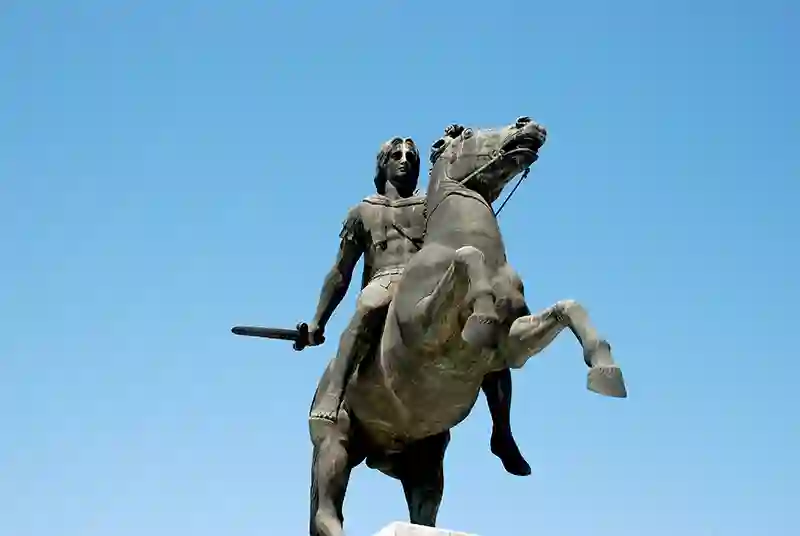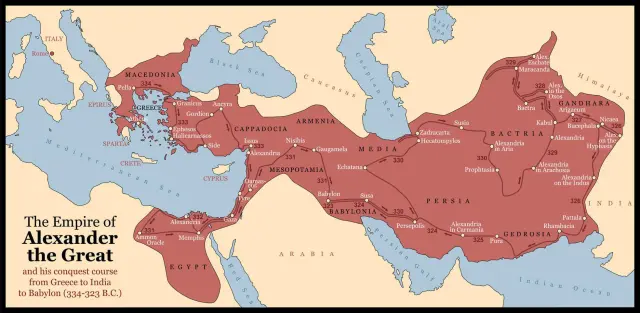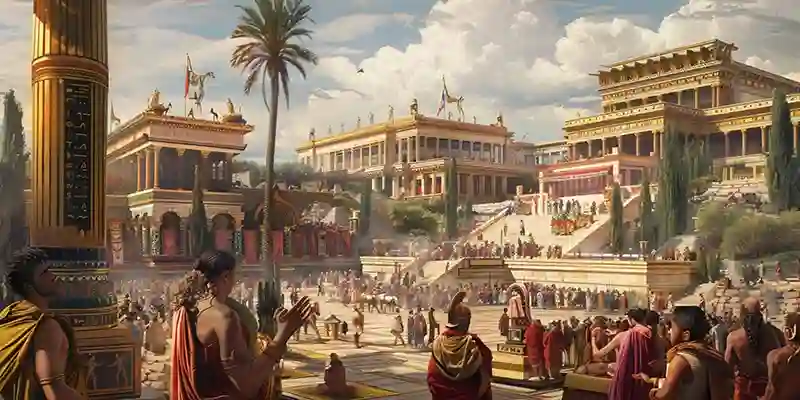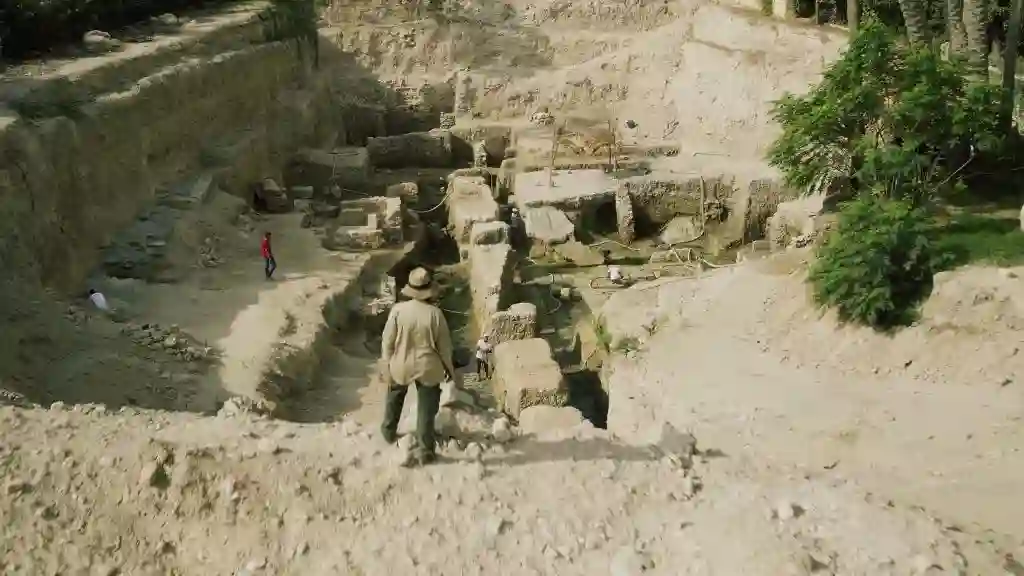Few historical mysteries captivate the imagination quite like the elusive tomb of Alexander the Great. A military genius and king whose conquests shaped the ancient world, Alexander’s death in 323 BCE remains shrouded in both intrigue and ambiguity.
While his life and accomplishments are well-documented, the final resting place of the Macedonian ruler, often referred to as “Alexander the Great tomb,” has remained an unsolved enigma for over two millennia.
Numerous searches, both historical and contemporary, have sought to uncover this long-lost tomb, yet its location continues to evade discovery. This article delves deep into what is known, the unexplained, the theories, and the ongoing efforts to solve one of history’s greatest mysteries.

What We Know: Established Facts About Alexander’s Death and Burial
Death of Alexander the Great
Alexander the Great died under mysterious circumstances in Babylon, present-day Iraq, in 323 BCE, at the age of 32. After his death, historical records suggest his body was preserved in honey to prevent decomposition—a testament to his followers’ reverence for their fallen leader.
Ancient sources, including Diodorus Siculus and Plutarch, recount that Alexander’s body was initially intended to be interred in his birthplace, Aegae, in Macedonia, but was instead hijacked en route by Ptolemy, one of his generals, who took the body to Egypt. The aim was likely to legitimize his rule in Egypt by possessing the remains of the great conqueror.
Burial in Alexandria, Egypt
According to historical accounts, Ptolemy laid Alexander’s body to rest in Memphis before eventually transferring it to Alexandria—a city founded by Alexander himself and envisioned as a center of knowledge and culture. The tomb was said to have been located in the heart of the city, a magnificent structure fitting for a man who had united much of the known world under his rule. Throughout antiquity, Alexander’s tomb in Alexandria was a renowned monument, attracting visitors, including Julius Caesar and Augustus. The last recorded mention of the tomb was in the writings of the Roman Emperor Caracalla in the 3rd century CE.

What Remains a Mystery?
Disappearance of the Tomb
Despite its initial prominence, the tomb of Alexander the Great gradually vanished from historical records. Several theories suggest that the tomb was damaged or destroyed during periods of civil unrest, religious upheaval, or natural disasters such as earthquakes. The complete disappearance of such a significant monument remains an inexplicable mystery. Although many search attempts have been undertaken to find Alexander’s final resting place, the precise location has never been verified, leaving historians and archaeologists puzzled.
Current Archaeological and Historical Efforts
The question “where is Alexander the Great tomb?” has led to numerous hypotheses over the years. Various locations have been proposed, ranging from the modern-day city of Alexandria to more remote places like the Siwa Oasis in Egypt, which is linked to Alexander’s visit to the Oracle of Amun. Despite these theories, definitive archaeological evidence confirming the exact site of the tomb has yet to be found. This ongoing mystery has attracted renewed interest from both researchers and adventurers who hope to make a breakthrough discovery.
Theories and Speculation: Possible Locations of Alexander’s Tomb
Theory 1: The Tomb Lies in Alexandria, Egypt
Most historians agree that the tomb was likely in Alexandria, Egypt, given its initial prominence. Ancient texts indicate the tomb’s location in the city’s royal quarter, which is now submerged underwater or buried beneath modern-day structures.
Some suggest the tomb could lie beneath the mosque of Nabi Daniel in Alexandria, based on local traditions and discoveries of ancient underground passages. However, excavations have yet to produce conclusive evidence, and questions such as “when was Alexander the Great tomb found?” remain unanswered.

Theory 2: Siwa Oasis in the Libyan Desert
Another theory posits that Alexander’s tomb may be located in the Siwa Oasis in the Libyan Desert. Alexander visited the Siwa Oasis in 331 BCE to consult the Oracle of Amun, who declared him the son of Zeus-Ammon. Some believe that Alexander wished to be buried near the oracle, viewing it as his spiritual home. The idea gained traction in 2018 when Egyptian archaeologists announced the discovery of a large ancient tomb in the area, but further analysis revealed it was not connected to Alexander.

Theory 3: A Lost Tomb in Greece or Macedonia
A less popular but intriguing theory suggests that Alexander’s body was returned to his homeland, possibly buried in secret to prevent it from falling into enemy hands. Advocates of this theory argue that Alexander’s original wishes were for his body to be interred in Macedonia, and some even claim that secretive burial rites took place in the ancient royal city of Aegae, now Vergina. Despite being a compelling idea, there is little solid evidence to support it.
Theory 4: Alternative Speculations and Popular Culture
Modern pop culture, including video games like “Assassin’s Creed Origins” and TV shows like “Moon Knight,” have further fueled the public’s fascination with Alexander’s tomb. These portrayals often place the tomb in exotic or hidden locations, reflecting the enduring allure of this historical mystery. Speculative theories also abound on platforms like Reddit and online forums, where amateur historians and enthusiasts debate the latest findings and rumors. For a deeper dive into the ongoing search for the tomb, explore National Geographic’s exploration of Alexander the Great’s Tomb.

Frequently Asked Questions (FAQs)
1. Where is the tomb of Alexander the Great located?
The exact location of Alexander the Great’s tomb remains unknown, but it is most commonly believed to be in Alexandria, Egypt.
2. Has Alexander the Great’s tomb been found?
No, Alexander the Great’s tomb has not been conclusively found, despite numerous searches and theories.
3. What happened to Alexander the Great’s tomb?
Alexander’s tomb disappeared from historical records after the 3rd century CE, and its location remains one of history’s great mysteries.
4. Was Alexander the Great buried in Siwa Oasis?
There is a theory suggesting Alexander may have been buried in Siwa Oasis, but there is no concrete evidence to support this.
5. Why is Alexander the Great’s tomb significant?
The tomb represents the final resting place of one of history’s most famous conquerors, making its discovery an invaluable piece of world history.
6. Did Alexander the Great want to be buried in Macedonia?
Some sources suggest Alexander wanted to be buried in Macedonia, but his body was reportedly taken to Egypt by Ptolemy.
7. What role does modern technology play in the search for Alexander’s tomb?
Modern technology, such as ground-penetrating radar and remote sensing, is used in archaeological searches to locate potential sites for Alexander’s tomb.
Conclusion: The Search for Alexander’s Tomb Continues
While numerous theories and ongoing excavations offer tantalizing hints, the mystery of “where is Alexander the Great tomb” remains unresolved. The disappearance of such a monumental site defies explanation and continues to captivate archaeologists, historians, and the general public.
As new technologies emerge, like those used in solving other historical puzzles, such as the truth behind the Trojan Horse, we may one day uncover the lost tomb and solve this ancient enigma.
Until then, Alexander the Great’s final resting place remains a tantalizing mystery—a hidden chapter in the story of one of history’s greatest conquerors.
Use of Our Content
⚠️ Content on “Mystery Uncover” is protected under US and International Copyright Laws.
You are free to reuse, republish, and share our content by giving credit to the source as Mystery Uncover with a link to the original material on mysteryuncover.com.






